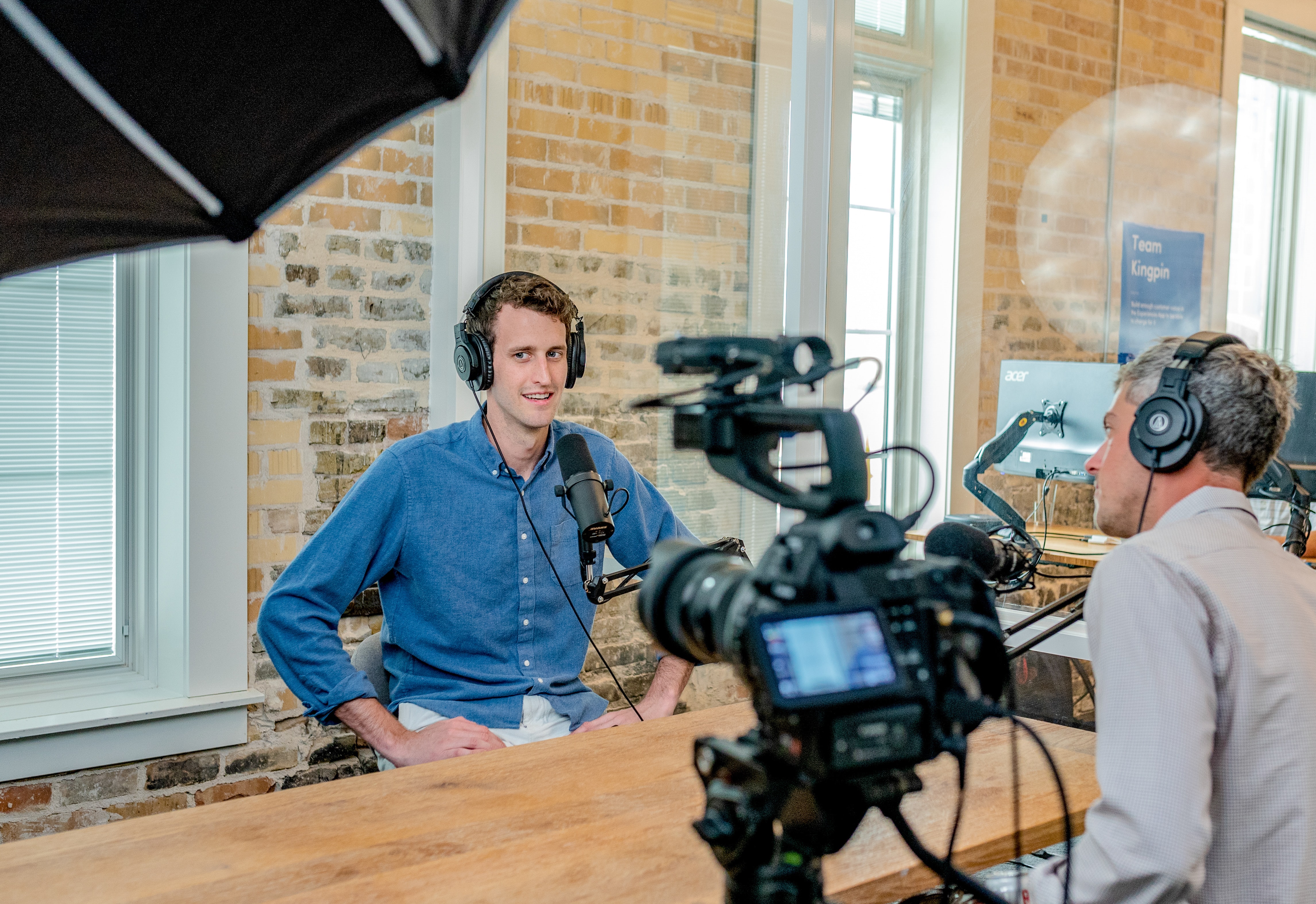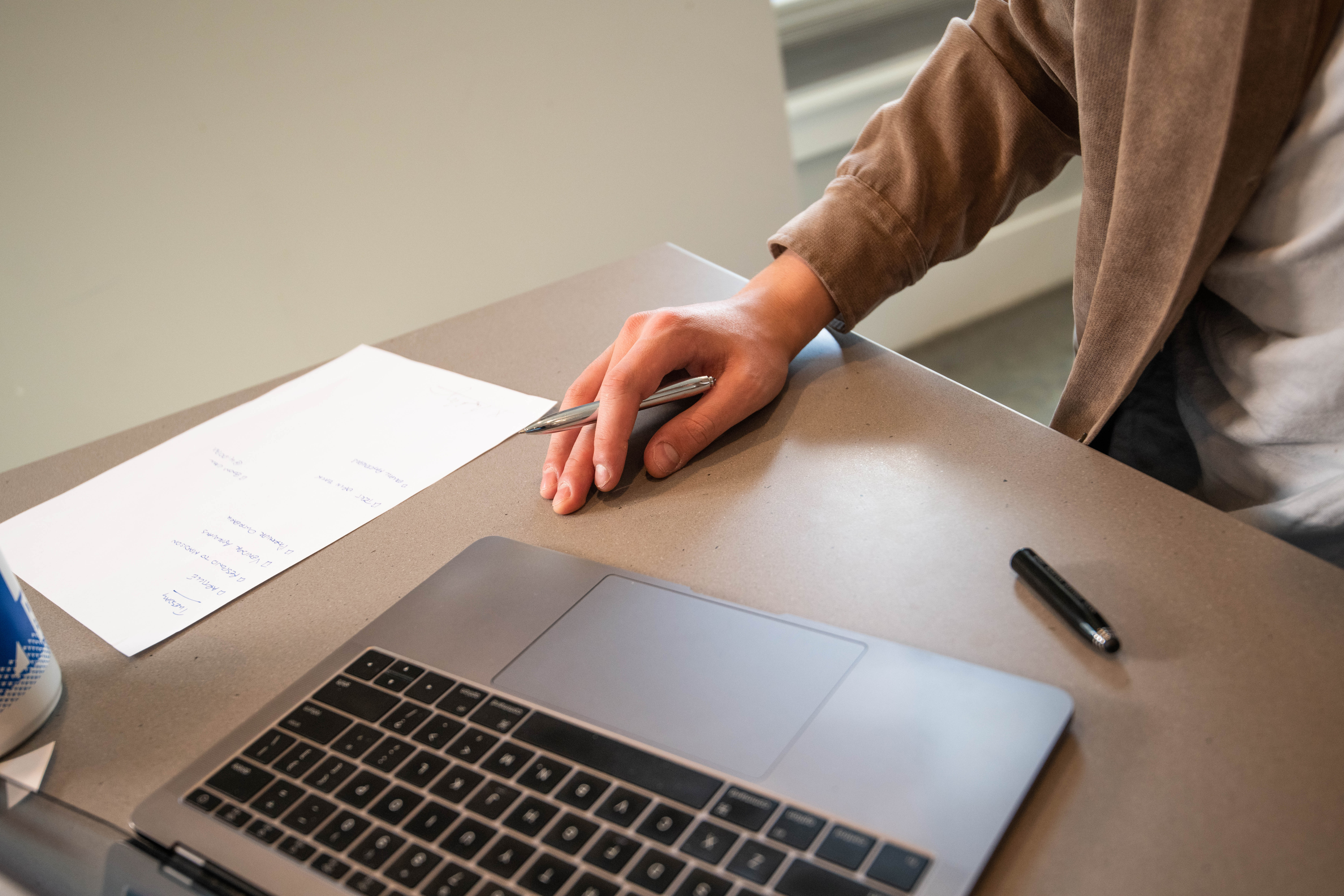Got a video interview coming up? Here’s how to make it work for you!
Today’s technology has equipped us with several tools to help make modern life easier, especially when it comes to communication
And, thanks to FaceTime and Skype, video interviewing is just one way businesses are using technology to save time and money.
More and more companies are now using video interviews to connect with potential employees, especially with the COVID-19 pandemic which is having a big effect on the way businesses recruit new candidates.
Because of this, its more important than ever to make sure that your telephone and online video interview skills are up to scratch.
So, if you’ve got a video interview coming up, here’s how to make it work for you so you can wow your potential employers...
Video interviews at M&E
At M&E, we have always conducted telephone and video interviews due to the location of our clients. As overseas defence contracting specialists, we work with clients and candidates across the globe, including Europe, the Middle East, Asia and the USA.
This means that telephone and video interviews are an essential part of our hiring process, enabling our candidates and clients from all over the world to interact without having to travel long distances.
As defence recruitment experts, we are here to provide help and advice on every step of the recruitment process - and as a result, we’ve got plenty of tried and tested tips to make sure your online video interview goes off without a hitch.
How to make video interviews work for you
Preparing for a video interview is very similar to preparing for any other interview in that the questions you will be asked and the way you conduct yourself will be the same as in traditional face-to-face interviews.
However, there are some additional things to consider, from choosing the right location to testing your technology and how to use body language.
1. Choose your location
With children off school and many partners still working from home due to COVID-19, it’s important to plan where you’re going to do your video interview well in advance. Ideally, you’ll want to choose a quiet location where you won’t be disturbed and there’s no background noise.
Once you’ve decided on your location, you need to set the scene: make sure the lighting is right so that your interviewer can see you - no dark corners! - and try and ensure there is a plain background so your interviewer doesn’t get distracted.
You should also make sure the background is nice and tidy and free from clutter too, and finally, close any software that might make notification sounds on your computer and switch your phone to silent to guarantee there will be no distractions.
2. Dress to impress
You might be at home, but you are still attending a job interview so it’s still really important to give a good first impression.
Make sure you dress appropriately - you should wear the same outfit you would have chosen for a traditional face-to-face meeting - and try to dress professionally from head-to-toe. However tempting it is, don’t wear a shirt and tie with pyjamas or tracksuit bottoms just because you’ll only be seen from the waist up!
Not only does dressing for the part help to make you feel more confident, but if you do have to stand up for any reason during the interview, you’ll save yourself a red face. Finally, avoid wearing bright, flash colours or clothes with a busy pattern as these could prove to be distracting for the interviewer.

3. Watch your body language
Body language is also really important when it comes to video interviews. Your interviewer will want you to smile, listen and appear interested in what they are saying, so make sure you avoid slouching or fidgeting too much!
Eye contact is important too: it’s easy for your eyes to wander when the person you are talking to isn’t in the room, so make sure you maintain ‘eye contact’ by looking directly into the camera instead of at the screen or at your own image.
Finally, remember to speak clearly and be careful not to interrupt - if there is a delay over the internet this is especially important to make sure no one ends up talking over each other.
4. Do a trial run
A few days before the interview, make sure you test your computer, camera and internet connection to make sure that the picture is clear and the sound quality is good.
On the day of the video interview, you should also make sure everything is fully charged or plugged in and do another test of your computer, camera and internet connection; you don’t want to be fiddling around and sorting things out when the interview starts, so make sure you give yourself enough time prior to the start time to get everything up and running.
Once your online video interview starts, if there are any technical hitches or if you can’t hear them properly, make sure you let your interviewer know rather than struggling through.
They’d much rather end the call and redial so you can give your best performance, so don’t be afraid to flag any technical difficulties. starts, if there are any technical hitches or if you can’t hear them properly, make sure you let your interviewer know rather than struggling through.
They’d much rather end the call and redial so you can give your best performance, so don’t be afraid to flag any technical difficulties.
5. Always do your research
Finally, your performance in an interview will ultimately boil down to how well you prepare. Make sure you research the employer and go over the job description so you can be sure you understand the role and know what skills you need to highlight.
When interviewing for a contract role with M&E, the type of questions you will be asked typically depend on the type of position you are interviewing for, however, some popular questions to prepare for include what your career goals are for the future and, if you are entering civilian employment after leaving the army, what are your reasons for doing so.
You might also be asked to give examples of how you have performed well under pressure, and if you are interviewing for a role, you interviewer will ask questions to check you have the necessary knowledge about working on the relevant equipment.
You should also prepare some questions to ask as well to show the interviewer that you are engaged and interested. Some good ideas include asking about opportunities to progress or what level of responsibility you can expect - and remember, the more you engage with the interviewer, the better!
Are you looking for a job as an overseas contractor?
At M&E, we have over 20 years of experience and have a global reputation for the successful placement of overseas contract jobs in the defence sector. With expertise in the aviation, land and marine environments, our services include maintenance, repair, supply and logistics and transportation support.
Our work is underpinned by our ethos for high-quality, responsive and cost-effective services and the rapid recruitment and deployment of contract workers, so if you want to find out more about how we can help you find your perfect role, contact our team today.
